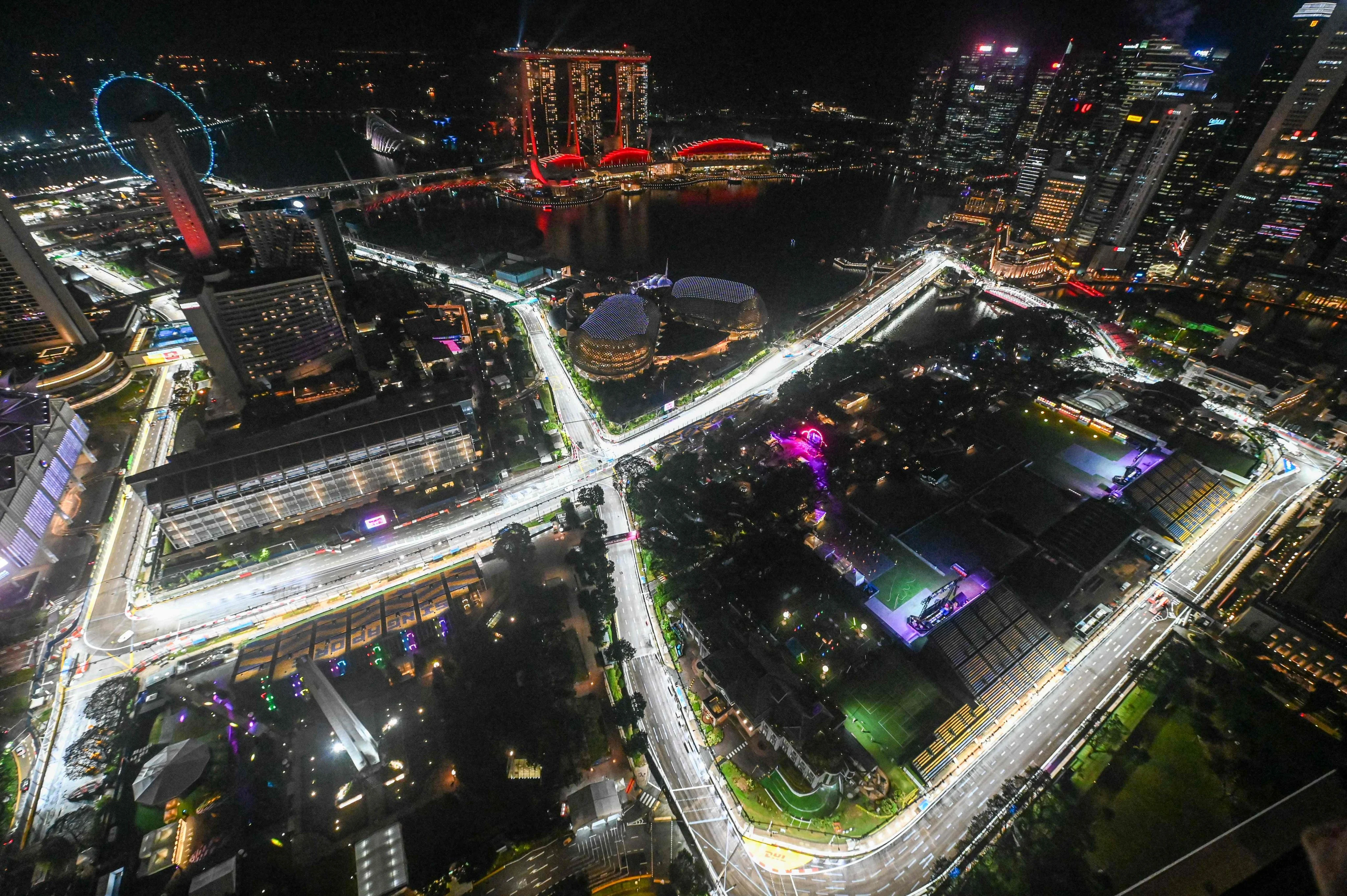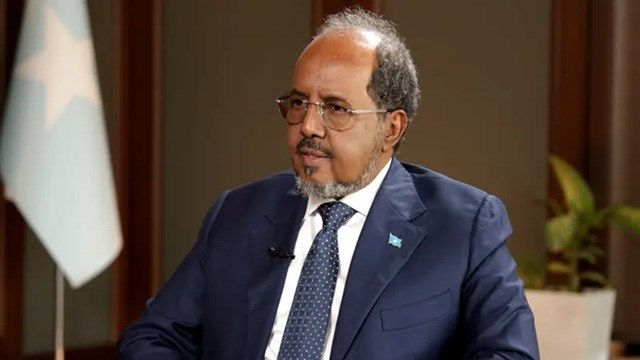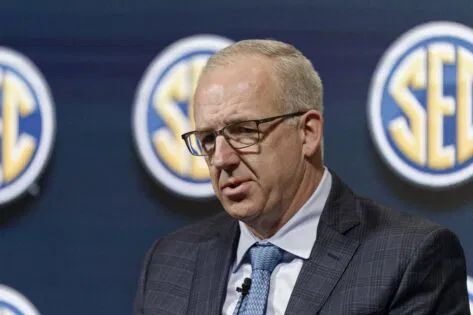By Jean Iau
Copyright scmp

As Singapore welcomes the return of the Formula One Grand Prix from Friday to Sunday, with road closures downtown and shopping centres brimming with fans hoping to catch a glimpse of their favourite drivers, the high-octane buzz is once again in full swing.
Now in its 16th year, F1’s inaugural night race has become one of the city state’s flagship international events. But with each edition costing more than S$100 million (US$78 million), the economic payoff is increasingly being viewed through a wider lens – particularly as Singapore faces rising living costs and demographic shifts.
Government officials and analysts say the event continues to deliver substantial returns in terms of tourism receipts, global branding and local business opportunities. Yet there are also more tempered views emerging, particularly among small businesses and residents, about whether the race’s benefits are evenly spread out or as impactful as they once were.
In 2022, Trade Minister Gan Kim Yong said the cost of hosting the race under the current seven-year deal – which expires in 2028 – would range between S$135 million and S$140 million annually, with the government co-funding up to 60 per cent of approved costs.
Lilian Chee, director of sports at the Singapore Tourism Board, told This Week in Asia that since its debut in 2008, the Formula 1 Singapore Grand Prix had attracted more than 720,000 international visitors and generated over S$2.2 billion in incremental tourism receipts across industries including hospitality, F&B, attractions and retail.
More than 700 Singapore-based companies are also subcontracted annually for the race, with local businesses involved in the race preparations and operations also reaping economic benefits.
Some 30,000 staff, contractors and stakeholders are accredited to work at the event every year, while about 900 students are trained and hired annually including as guides, access control staff and hospitality management.
“It has remained a strong draw for international visitors and has enhanced Singapore’s international profile, showcasing our city state on a world stage,” said Chee, noting that between 2008 and last year, more than a billion viewers globally tuned in to the race.
“The projected economic benefits to Singapore of the new term continue to outweigh the costs to the government.”
James Walton, partner and sports business group leader at Deloitte, noted that while the event was no longer as critical for Singapore to attract other sporting events and to be on the world map, it provided clear benefits to the city state as an exciting event for many Singaporeans and international visitors.
He argued that an estimated 90 per cent of the organising costs flowed back into Singapore’s economy through numerous vendors, most of them local small and medium-sized enterprises.
“These companies provide services such as lighting, catering, security and ticketing, creating jobs and generating a multiplier effect of economic impact and by giving local businesses the opportunity to be part of an international event,” Walton said.
Beyond the glitz
The race has not been without its challenges. Former transport minister S. Iswaran was sentenced to 12 months’ imprisonment last year after being found guilty of accepting gifts from billionaire Ong Beng Seng, who is widely credited with helping bring F1 to Singapore.
Ong was fined S$30,000 for abetting Iswaran in obstructing justice, but avoided jail time after being granted judicial mercy for his medical condition, which includes incurable multiple myeloma, a rare blood cancer.
A review of the F1 contracts between the government and race organiser Singapore GP is ongoing following the corruption probe surrounding Iswaran.
This Week in Asia has reached out to Singapore GP for comment.
Chee said more information on the review would be shared in due course and that the tourism board remained “committed to maintaining Singapore’s position as a trusted, world-class events destination”.
While the case does not directly reflect on the race’s economic merits, analysts say it has prompted reflection about the opaque nature of elite global sports.
Economist Walter Theseira cites Iswaran’s case and the tax fraud involving former F1 boss Bernie Ecclestone as examples of how the rich and powerful operated in the sport.
“Nobody is quite sure what basis F1 makes [hosting decisions] on, and what the web of relationships [is],” Theseira said.
“The Iswaran case didn’t come as a total surprise, given that the rich and powerful in the sport had always blurred the lines with their business and political dealings.”
On whether Singapore benefited from hosting the race, he said it depended on finer details, such as how much the local supply chain was tapped and to what extent tourism was diverted from Singapore because hotels were booked out or had their prices increased during the race week.
“At the personal level, it’s really – does your job and your business actually depend on F1 coming? Because if it doesn’t, and if you’re not going to watch F1, you’re probably slightly ticked off by the traffic congestion and road blocks,” Theseira said.
Boost for business?
Smaller local brands This Week in Asia spoke to were mixed on the extent to which their businesses benefited from the race.
Tyler Hendrie, general manager of Tanglin Gin, said the company had partnered with organisers to release a limited-edition gin at its distillery and through Lotte at Changi Airport, which contributed to the company’s year-on-year growth.
From a traffic perspective, Tanglin Gin’s location in Dempsey – in central Singapore and some 8km from the racetrack at Marina Bay in the south – means it does not see a dramatic increase in casual walk-ins during F1 week, according to Hendrie.
However, there has been a clear uptick in distillery tours and tastings by up to 30 per cent during this period, along with more private events linked to the excitement around the race.
Meanwhile, Malt Craft Beer Bar at Concourse Skyline, which is within walking distance from the racetrack, has experienced a small uptick in earnings during F1 week for the past three years, from 10 per cent in 2022 doubling to 20 per cent last year.
That, however, has come against the backdrop of the bar’s overall revenue declining by 10 per cent from 2023 to 2024.
“Events like F1 attract people with high disposable income. They tend to go to high-end or fancy places,” said Will Ong, the bar’s owner.
Those on top 50 lists and with strong social media presences tended to benefit more, he noted.
Former Middle Eastern-inspired Artichoke held F1-themed special promotions during race week when the restaurant was still located on Middle Road in central Singapore, but found that the boost in customer numbers was negligible despite being a 10-minute walk from the track.
“Everyone’s just stuck on the track. People buy the concession stand food and dinner time is exactly the time when the race goes on, so there’s no real benefit to us,” said chef-owner Bjorn Shen.
“In fact, it was the opposite of benefit. We were a bit quieter during that weekend.”
Shen decided against opening a concession stand in the ticketed area over concerns about revenue losses and challenging logistics since roads were closed.
“The people who come in for F1 are predominantly high-budget luxury travellers. This is the kind of sport that tends to attract a high SES [socioeconomic status] audience, so people who watch it travel a bit more luxuriously, and it’s the big businesses that would benefit from them,” Shen said.
Earlier this year, Artichoke moved to New Bahru, a new lifestyle venue located about 4.5km from the Marina Bay racetrack which became a partner with the Grand Prix Singapore Season (GPSS) this year.
The GPSS – a 10-day festival until Sunday – allows visitors and locals to explore programmes across Singapore.
Tania Chan, chief marketing officer of the Lo & Behold Group, said New Bahru would bring together 70 brands and experiences for the GPSS during race week and F1 ticket holders could enjoy perks including discounts from participating brands.
Chan said she hoped the festival would help visitors to Singapore discover “the pulse of a city” – such as its people and culture – beyond the usual attractions.
For F&B operators, however, while F1 week might represent a surge in earnings, “the real challenge is conversion and sustainability post-race week”, Chan added.



